Addition Practice Extra Challenge Numbers Worksheets for Ages 6-9
7 filtered results
-
From - To
Enhance your child's arithmetic abilities with our Addition Practice Extra Challenge Numbers Worksheets, perfect for ages 6-9! These worksheets are designed to stimulate young minds through engaging and advanced addition exercises, promoting critical thinking and problem-solving skills. Kids will enjoy tackling these fun challenges, which range from basic sums to more complex additions, ensuring they remain entertained while learning. Our printable resources provide the perfect balance of educational fun, supporting school learning and homework. Help your child master addition and build a strong mathematical foundation with our carefully crafted Extra Challenge Number Worksheets today!
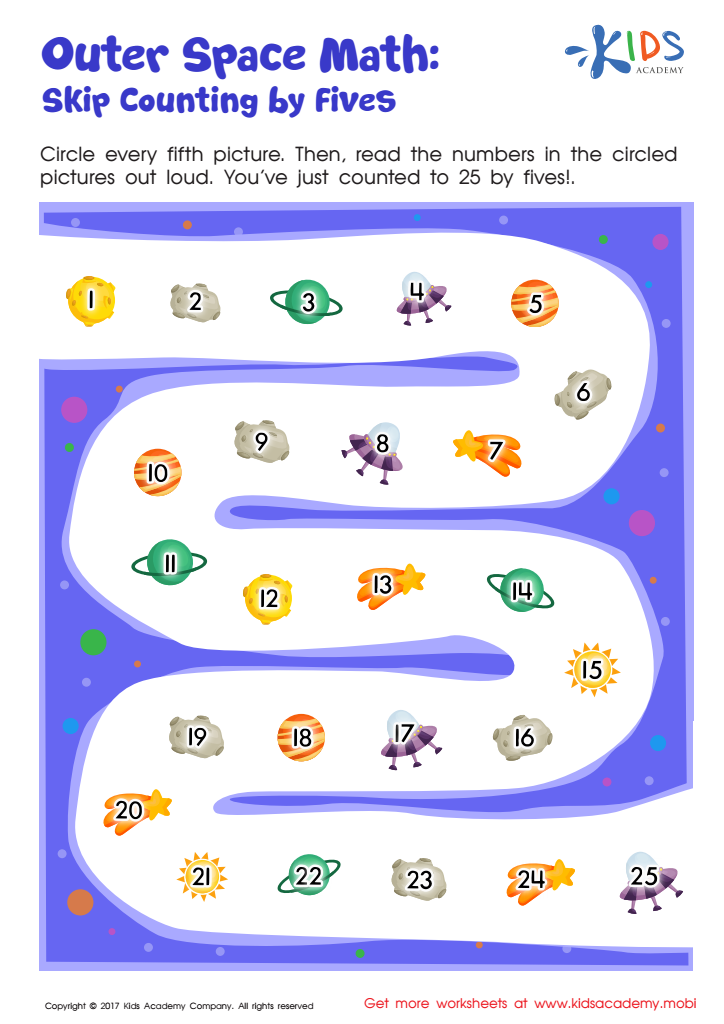

Skip Counting by 5s: Outer Space Math Printable
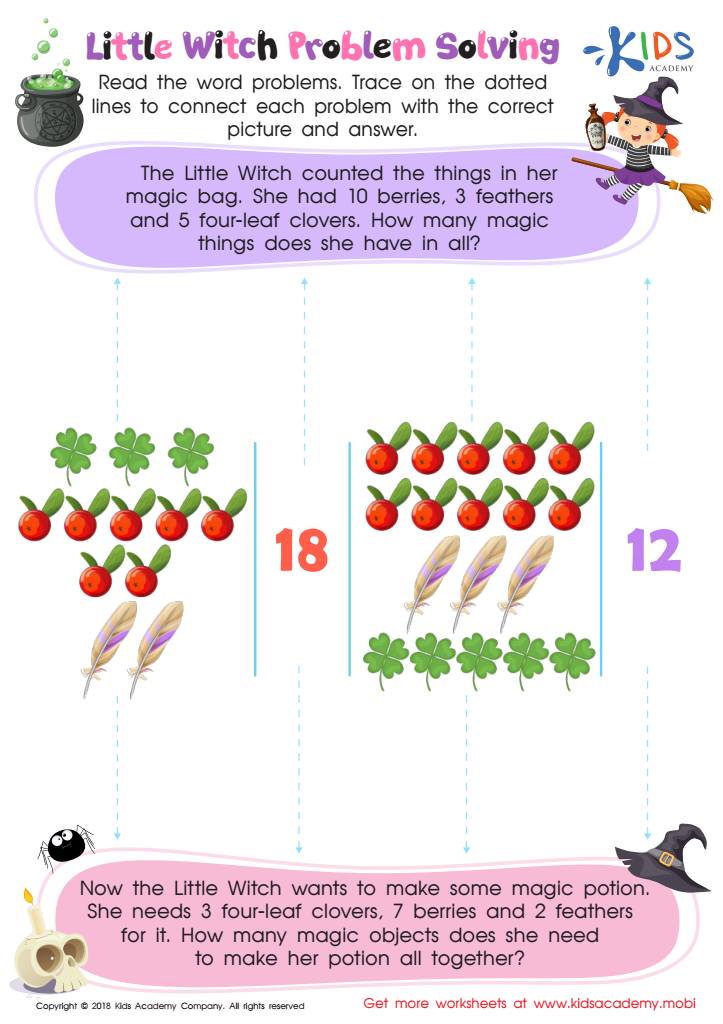

Little Witch Problem Solving Worksheet
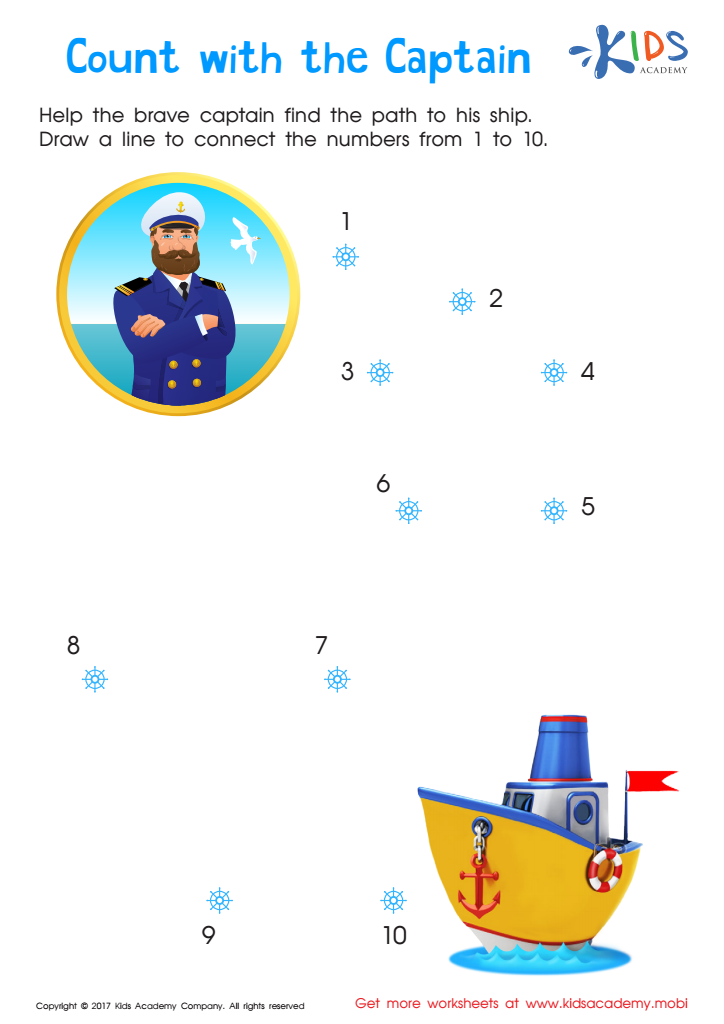

Count with the Captain Connect Dots Worksheet
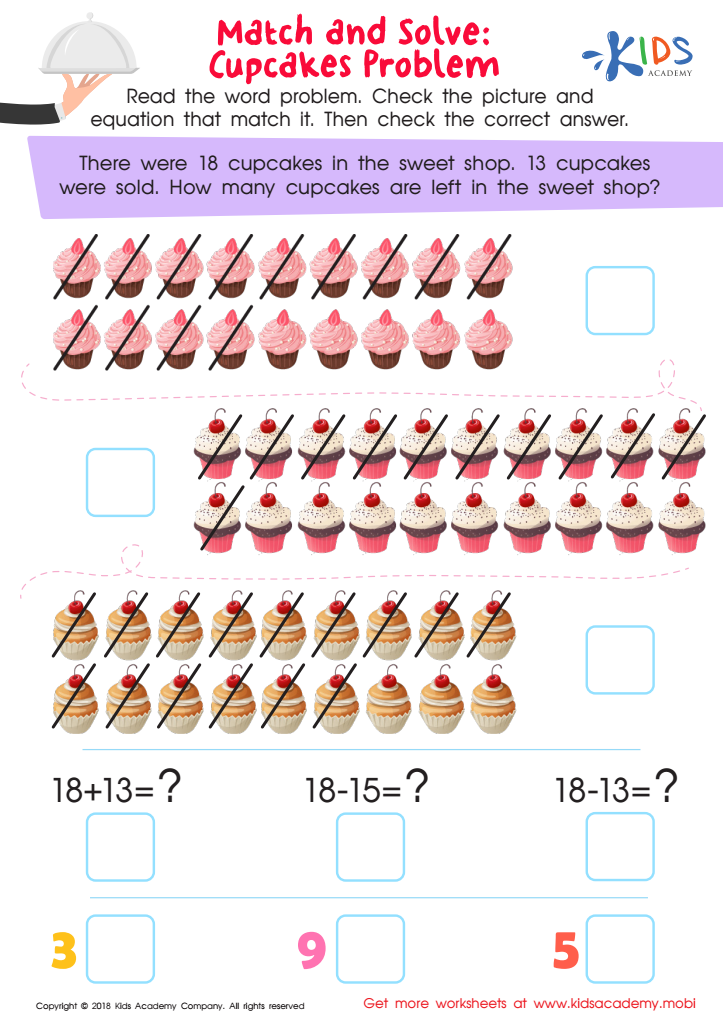

Match and Solve: Cupcakes Problem Worksheet
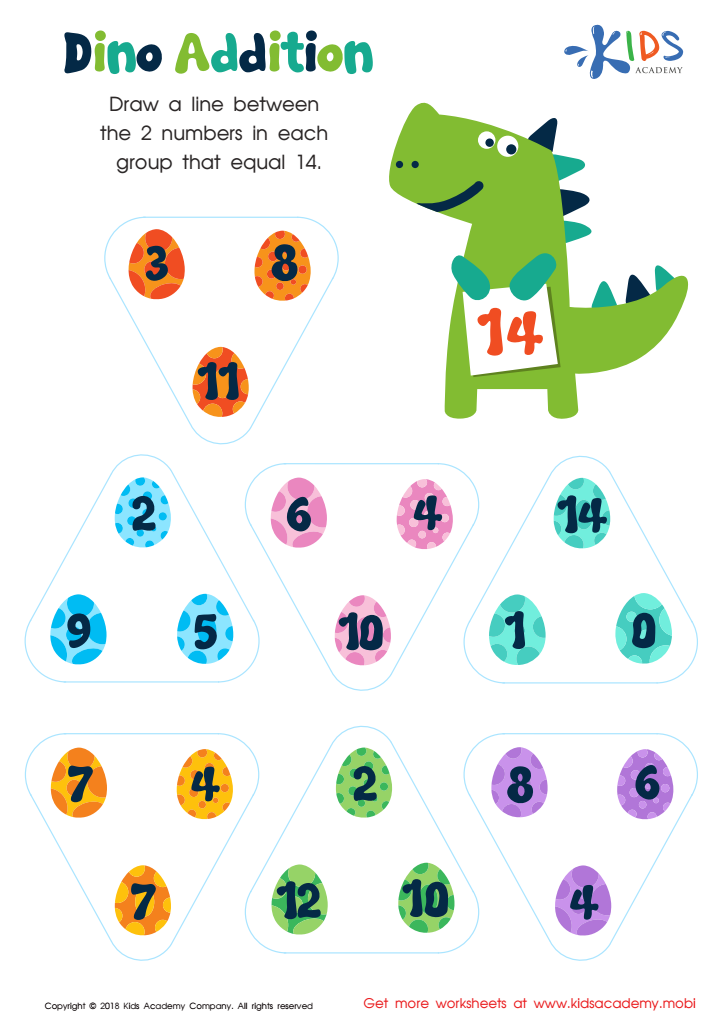

Dino Addition Worksheet
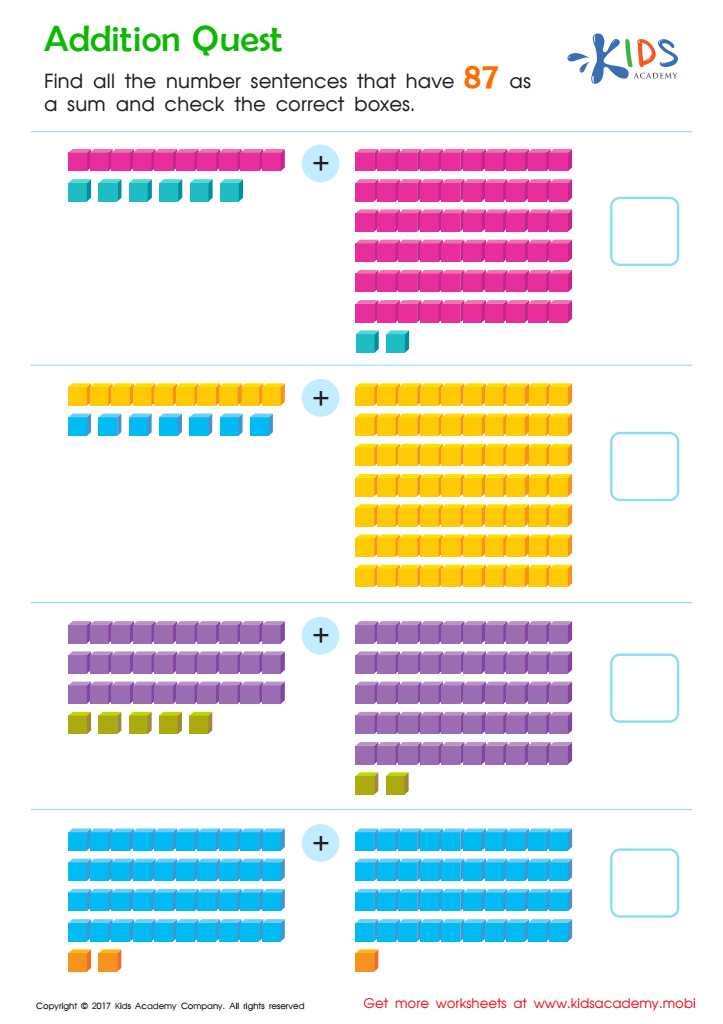

Addition Quest Worksheet: Part 1
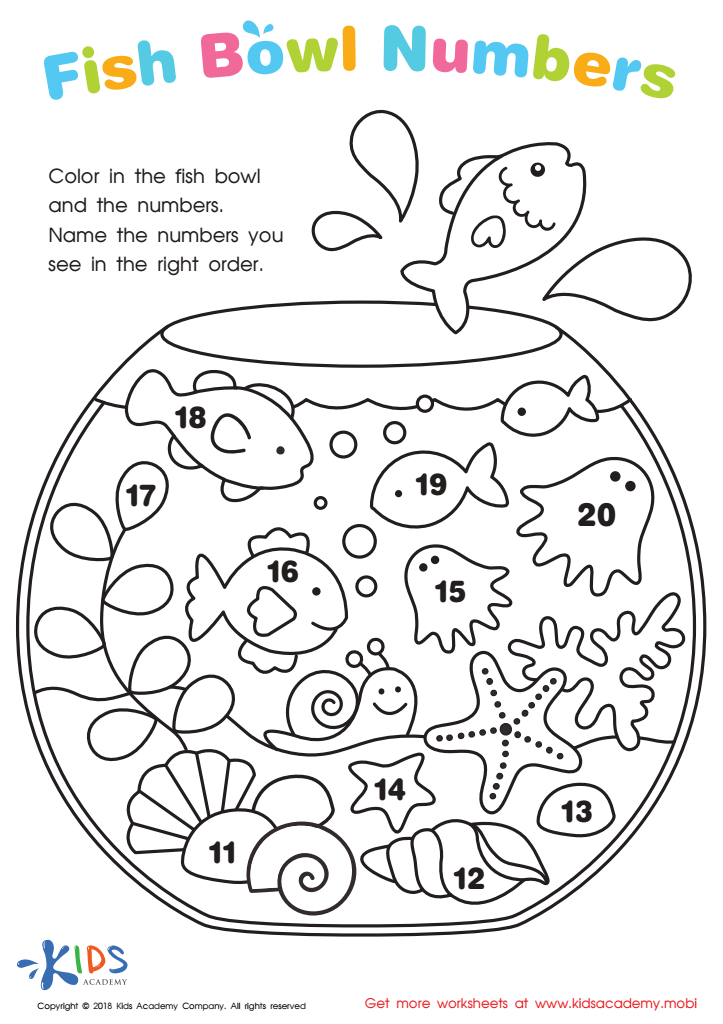

Fish Bowl Numbers Worksheet
Parents and teachers should place a high importance on Addition Practice Extra Challenge Numbers for children aged 6-9 because these activities play a crucial role in the foundational development of math skills. At this stage, children are honing their ability to perform basic arithmetic operations, which are essential for all future math learning.
Engaging with challenging addition problems helps young learners to strengthen their mental math agility, short-term memory, and concentration. This not only makes them proficient in addition but boosts their overall confidence in dealing with numbers. When children tackle these addition problems regularly, they develop problem-solving skills and a methodological approach to breaking down tasks, both of which are invaluable in many subjects beyond math.
Moreover, providing these additional challenges taps into a child's natural curiosity and drive for competence, making learning math an intrinsically rewarding experience. It also translates into a positive attitude towards math in the long run, as children see progress through practice.
When parents and teachers facilitate addition challenges, they reinforce a growth mindset. This implicitly teaches children that effort leads to improvement, which is a powerful belief that affects learning across all subjects. In summary, these practices ensure fluency, build essential problem-solving skills, and foster a positive, enduring relationship with learning mathematics.
 Assign to My Students
Assign to My Students






















